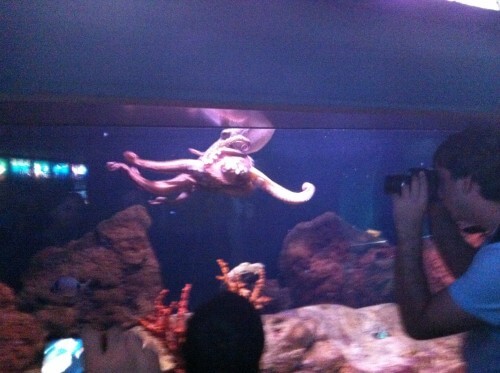This is according to a report published on November 156 in the journal Current Biology detailing the first comprehensive survey of marine species in the world - a huge joint effort in which hundreds of researchers from all over the world participated.

At least a third of the species that inhabit the oceans may remain unknown to science. This is despite the fact that more species have been defined in the last decade than in any other period. This is according to a report published on November 16 in the journal Current Biology detailing the first comprehensive survey of marine species in the world - a huge joint effort in which hundreds of researchers from all over the world participated.
The researchers estimate that the oceans may be home to about a million species. Of these, about 226 have been described so far, there are still 65 species awaiting description in various collections. "For the first time, we can provide a detailed view of the wealth of species, spread over the entire main marine group. This is the front of the knowledge and perhaps also of the lack of knowledge - about life in the oceans" says Ward Appalatans from the Oceanographic Commission (IOC) of UNESCO.
The findings provide a reference point for conservation efforts and estimates of the rate of extinction, the researchers say. They expect that most of the unknown species -- disproportionately composed of small crustaceans, molluscs, worms and sponges -- will be found this century.
Previous assessments of the biological diversity in the sea relied on surveys and assessments of the rate of discovery of species in the past and other indicators. These assessments were varied and suffered mainly from the fact that until now there was no global catalog of marine species.
Appletans and his colleagues, including Mark Costello of the University of Auckland, have now built a kind of such a catalogue. "The World Register of Marine Species (WoRMS)" is an open database in the preparation of which 270 experts from 146 institutions and 32 countries participated. It is now 95% full and continues to be updated with each new species that is discovered. "Building the catalog was not easy because there was no formal way to register biological sex" says Costello.
A common problem was the multitude of descriptions and names of those species "synonyms" as Costello describes it. For example each dolphin and whale has an average of 14 different scientific names. While these double names were discovered through careful examination of the records and samples, the researchers expected to remove about 40 species from the list, but the list will grow back as DNA testing uncovers hidden species that the surveys overlooked.
While there are fewer species living in the oceans than on land, they represent much older evolutionary lineages that are vital to our understanding of life on Earth, Platans said, and to some extent WoRMS is just the beginning.
"The database provides an example of how other biologists can collaborate in a similar way to jointly produce an inventory of all life on Earth," Appletans said.

6 תגובות
The site is working on the problem of enlarging the images, and the problem will be solved on November 210, next year...
The truth is that it used to be possible to enlarge the photos... I wonder what happened to the possibility?!
Father, when will it be possible to enlarge the pictures? The creatures are intriguing, but it's hard to see them and it's a shame every time to leave the site to look for the source of the photos
"This is according to a report published in November 156" - is this according to the Mayan calendar?
Good to know that November has 156 days (or even more)